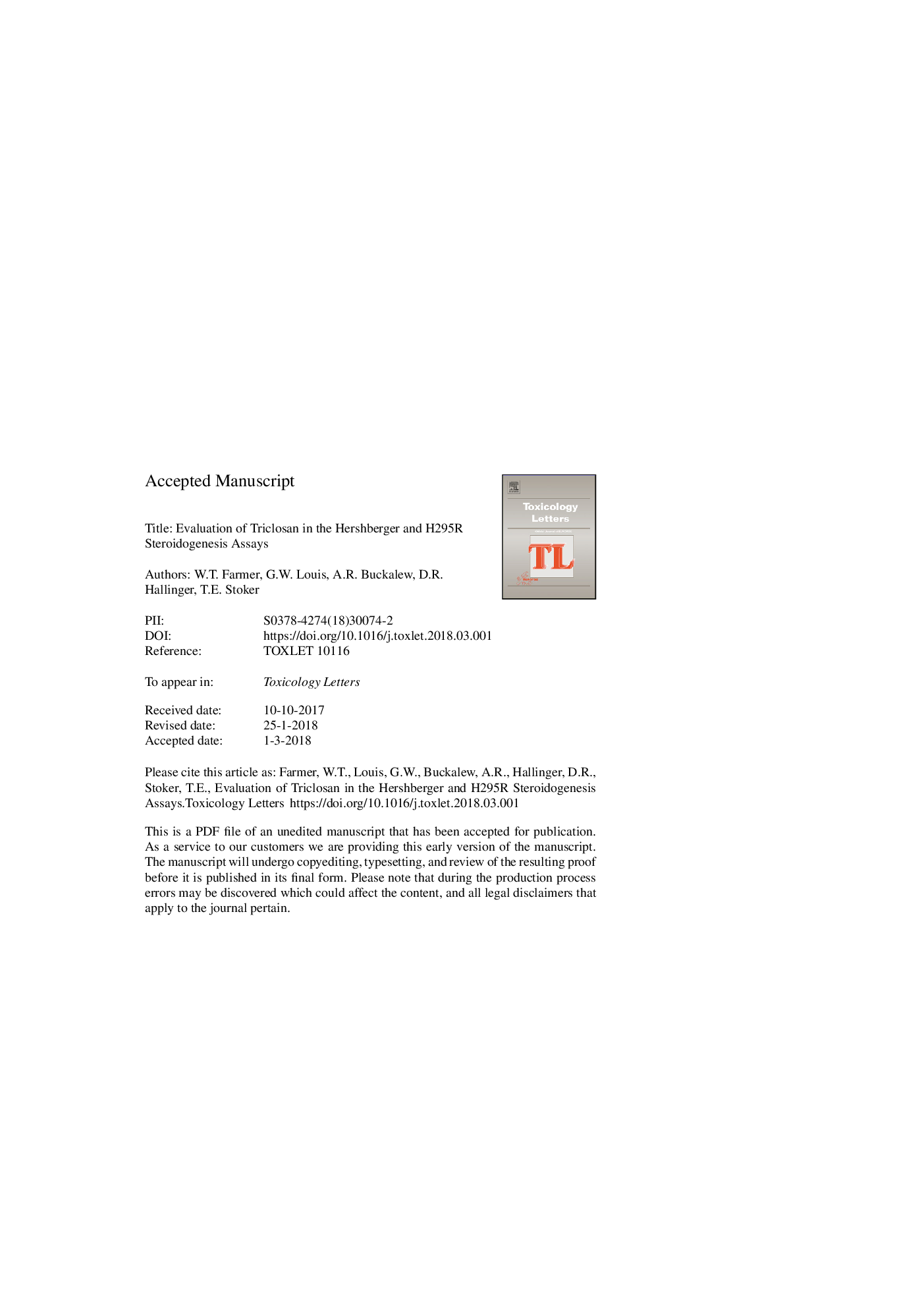| کد مقاله | کد نشریه | سال انتشار | مقاله انگلیسی | نسخه تمام متن |
|---|---|---|---|---|
| 8553296 | 1562581 | 2018 | 20 صفحه PDF | دانلود رایگان |
عنوان انگلیسی مقاله ISI
Evaluation of triclosan in the Hershberger and H295R steroidogenesis assays
دانلود مقاله + سفارش ترجمه
دانلود مقاله ISI انگلیسی
رایگان برای ایرانیان
کلمات کلیدی
موضوعات مرتبط
علوم زیستی و بیوفناوری
علوم محیط زیست
بهداشت، سم شناسی و جهش زایی
پیش نمایش صفحه اول مقاله

چکیده انگلیسی
Triclosan (TCS) is an antibacterial widely used in personal care products that exhibits endocrine disrupting activity in several species, with reports of altered thyroid, estrogen and androgen signaling pathways. To evaluate the androgenic mode of action, TCS was evaluated for androgen receptor mediated effects in the Hershberger assay and for altered androgen synthesis in the H295R steroidogenesis assay. In the Hershberger assay, castrated males were dosed by oral gavage for 10â¯days with corn oil (vehicle) or TCS (50 or 200â¯mg/kg/day) in the presence or absence of testosterone proprionate (TP, 0.2â¯mg/kg/day) prior to assessing accessory sex tissues (ASTs) weights. TCS alone or in combination with TP did not alter androgen dependent AST weights. Assessment of serum thyroxine (T4) demonstrated a significant dose-dependent decrease by TCS (50 or 200â¯mg/kg/day) co-administered with TP and TCS (200â¯mg/kg) without TP, but no differences in liver or thyroid weights. In the H295R assay, TCS from 0.01 to 10â¯Î¼M had no effect on testosterone production but TCS at 3â¯Î¼M and above did induce a significant increase in estrogen production. At 10â¯Î¼M, TCS produced significant cytotoxicity which confounded the interpretation of the estrogenic effect at that concentration. Thus, TCS had no effect on androgen synthesis or activity in the models used, but did enhance estrogen production and suppress serum T4.
ناشر
Database: Elsevier - ScienceDirect (ساینس دایرکت)
Journal: Toxicology Letters - Volume 291, July 2018, Pages 194-199
Journal: Toxicology Letters - Volume 291, July 2018, Pages 194-199
نویسندگان
W.T. Farmer, G.W. Louis, A.R. Buckalew, D.R. Hallinger, T.E. Stoker,